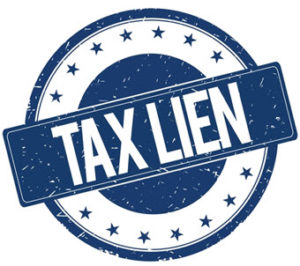Removing a Tax Lien

When an individual owes back taxes, the Internal Revenue Service (IRS) can use a variety of methods to collect the funds, including tax liens. Tax liens can take a significant financial toll on a taxpayer who is attempting to repay a debt, so if the IRS has placed a tax lien on your assets, it is important to contact an experienced tax attorney who can help explain your legal options.
Attaching a Lien
A lien can only be attached to a person’s property after the IRS has taken certain steps and the taxpayer has failed to fully pay the debt. These steps include:
- Assessing the taxpayer’s liability; and
- Sending the taxpayer a bill explaining how much he or she owes.
Once these requirements have been satisfied, the IRS can attach a lien to all of a taxpayer’s assets, including:
- Property;
- Securities;
- Vehicles; and
- Future assets.
Withdrawing the Notice of Federal Tax Lien
The IRS will release a taxpayer’s lien within 30 days after the debt has been paid in full. There are, however, a few other options for removing a lien, one of which is withdrawal. A withdrawal removes the public Notice of Federal Tax Lien, which is filed by the IRS when a lien is attached to a taxpayer’s assets and alerts creditors of the lien’s existence. The notice can make it very difficult to obtain credit, loans, and mortgages, so removing it can have a significant impact on a taxpayer’s ability to repay the debt. To be eligible for withdrawal, a taxpayer must establish one of the following:
- The Notice of Federal Tax Lien was not filed in accordance with federal procedure;
- The taxpayer agreed to repay the debt in installments and the agreement did not provide for the filing of the notice;
- Withdrawal will facilitate repayment of the debt;
- The taxpayer has committed to a Direct Debit Installment agreement; or
- Withdrawal would be in the best interest of both the IRS and the taxpayer.
Another withdrawal option allows for the removal of a lien notice if the liability has been satisfied, the lien has been released, and the taxpayer:
- Has filed all individual tax returns and business returns for the last three years; and
- Is current on tax payments and federal tax deposits.
The final withdrawal option allows for the removal of the lien notice for a taxpayer who has entered into a Direct Debit Installment agreement and who:
- Is a qualifying taxpayer, which means an individual that is only liable for income taxes or a company that is now out of business, but still has tax debt;
- Owes $25,000 or less;
- Agreed to a direct debit installment repayment plan that will pay off the full debt within five years;
- Has fully complied with all other filing and payment requirements;
- Has made three consecutive direct debit payments; and
- Has not defaulted on his or her Direct Debit Installment agreement.
Contact an Experienced Florida Tax Attorney Today
If you live in Daytona Beach, Orlando, Miami, or Jacksonville and the IRS has recently attached a lien to your property, please contact Ronald Cutler, P.A. by calling 386-788-4480 and a member of our legal team will help you schedule a consultation with a dedicated and experienced tax lawyer. If you have a hectic schedule and are unable to meet during the week, we will happily set-up a weekend meeting so that your case receives the personalized attention it deserves.
Resource:
irs.gov/pub/irs-pdf/f12277.pdf



